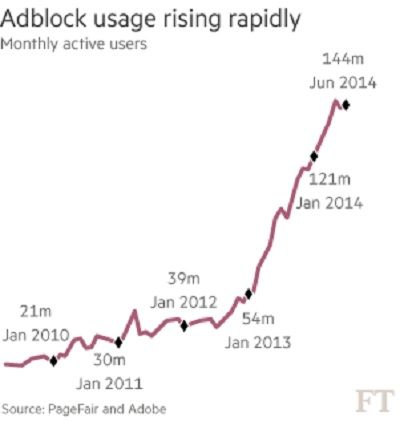Advertisements remain a major sticking point between online content creators and the people who consume what they publish. News sites, blogs, discussion forums, video sharing sites and social networks rely on their inline ad banners to survive but are often met with user complaints when the browsing experience is destroyed by intrusive overlays and sluggish performance.
Ad blockers have been popular on desktop devices for years in the form of add-ons or extensions for browsers like Google Chrome and Mozilla Firefox. They are less common on mobile platforms due to their locked-down nature. Although ad-blockers are available on Android, the experience when using them can be mixed and some apps require root access to a phone before they can even be installed.
With iOS 9, Apple enabled support for the controversial software, opening the floodgates to waves of new ad-blocking apps that soared to the top of the App Store’s top-paid chart within hours of the new operating system’s release. The surge highlighted how many people want to use the apps and just how large the demand for a truly free Internet, capable of somehow serving everybody equally, really is.
The overnight growth in people using ad blockers on mobile devices understandably worried many publishers. When a business has been built around the assumption that certain monetised content will be displayed on a page, having that content artificially removed inevitably leads to a slump in revenue. A report last month by PageFair and Adobe concluded that the cost of ad-blocking to publishers will total $22 billion this year, fuelled by 198 million active users worldwide.
The change in the App Store charts didn’t just scare the content creators though. The New York Times reports that Marco Arment, creator of iOS 9 ad-blocker Peace, removed the app from the Store on Friday and began refunding everybody who had bought it. After 36 hours at the top of Apple’s U.S. top-paid chart, Arment penned a telling blog post titled “Just doesn’t feel good.”
He explained that what “should have been the highlight” of his career was overshadowed by the impact on publishers that his creation would make over time. Describing ad-blocking as a “kind of war,” he said Peace’s all-or-nothing approach was “too blunt” and emphasized the need for such apps to be able to differentiate between individual ads and decide based on a number of factors whether to remove them from a page or not.
There have been calls for more in-depth studies into “ad blocking ethics.” Notable technology blogger John Gruber wrote this week that not all apps are as intrusive as others, highlighting his provider, The Deck, as a place to find fast-loading, well-optimised ads that are designed to easily integrate into existing webpages.
The Deck’s headline promise is that they will never track readers in any way and will serve only useful, content-appropriate ads designed with only supporting the publisher in mind. In its own words, the company is “fine with knowing nothing.”
This approach may need to be adopted by other providers if the content-rich Internet we know today is to survive for the future. Progress is already being made as industry members have begun to discuss whether the sudden growth in mobile ad-blocking facilitated by iOS9 could become the perfect opportunity to reform the fractured online monetisation systems of today. The intrusive, data and battery-heavy video overlays and flashing banners could be thrown out in exchange for more sophisticated content built with mobile users in mind.
In the short term, Apple defended its decision to add support for ad-blocking in iOS 9 by saying that it gives users the option to gain an “improved mobile browsing experience.”
Content creators may not be happy but those words could signify the entire ad-blocking saga: the current monetisation situation doesn’t favour user-friendly browsing and this won’t change until a catalyst forces it to. It isn’t too much of a stretch to imagine Apple’s move acting as this catalyst as ad networks have already begun to discuss how to deliver better experiences and ultimately a better Internet — for both the creator and the consumer.














